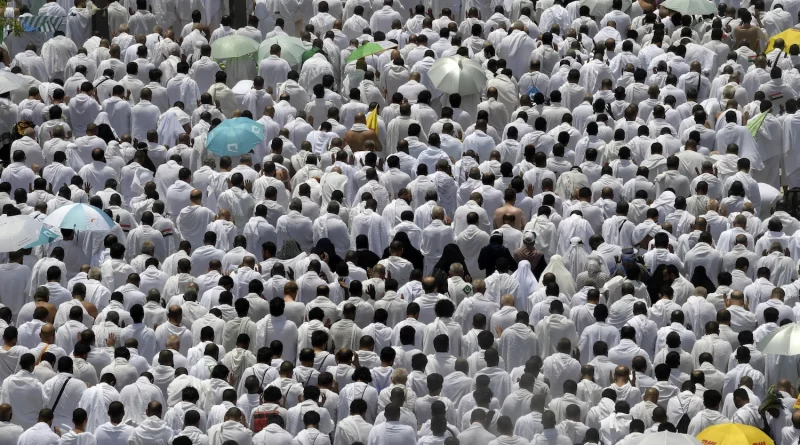Saudi Arabia announces health requirements for 2026 Hajj intending pilgrims
The Kingdom of Saudi Arabia, KSA, has unveiled comprehensive health requirements and guidelines for all intending pilgrims across the world planning to perform the 2026 Holy Pilgrimage (Hajj) in the Holy Land.
A circular by the authorities of the KSA, made available to journalists by the Deputy Director of Information and Public Relations in the National Hajj Commission of Nigeria, NAHCON, Fatima Sanda Usara, outlines both mandatory and recommended medical conditions that must be met prior to undertaking the pilgrimage.
According to the circular, all countries, including Nigeria, are to ensure that their citizens performing Hajj are physically fit and free from ailments that could affect their health or that of others during the pilgrimage.
The Saudi Ministry of Health listed severe heart, lung, or kidney diseases, advanced chronic illnesses, and mental or psychological disorders as conditions that may prevent an individual from performing Hajj.
It mandates full compliance with the Kingdom of Saudi Arabia’s Ministry of Health medical fitness requirements for attending Hajj, including a certificate from medical authorities of the pilgrims’ countries confirming that they are free of conditions like major organ failure (heart, lungs, liver, or kidneys); neurological or psychiatric disorders that impair cognition or are accompanied by severe motor disabilities; senility accompanied by dementia; high-risk pregnancy at any stage; cancer patients receiving chemotherapy, biological, or radiological treatment; and active infectious diseases with a public health impact such as tuberculosis and hemorrhagic fever.
On vaccination, the Saudi health authorities reiterated that all intending pilgrims must present valid certificates of vaccination against COVID-19, meningitis, polio, and yellow fever before entering the Kingdom.
To ensure the effectiveness of the guidelines, Saudi authorities will conduct health screenings at all entry points to ensure compliance with the set requirements, while any traveler who fails to meet these health standards may be denied entry, isolated, or subjected to further medical evaluation.
The Saudi Ministry of Hajj and Umrah emphasized that “no pilgrim suffering from the listed diseases will be allowed to travel, and health certificates will be thoroughly verified before and upon arrival in the Kingdom.”
It also disclosed that additional measures may be taken if there are global disease outbreaks or international public health emergencies during or prior to the Hajj exercise, in coordination with the World Health Organization, WHO.
The NAHCON has, therefore, urged all intending pilgrims to take note of these requirements and ensure they complete the necessary vaccinations and health checks well ahead of the 2026 Hajj season.
The Commission restated its commitment to work with the State Muslim Pilgrims Welfare Boards and Licensed Tour Operators to enforce compliance as provided, to avoid travel disruptions at the point of entry into the Kingdom for Hajj.
